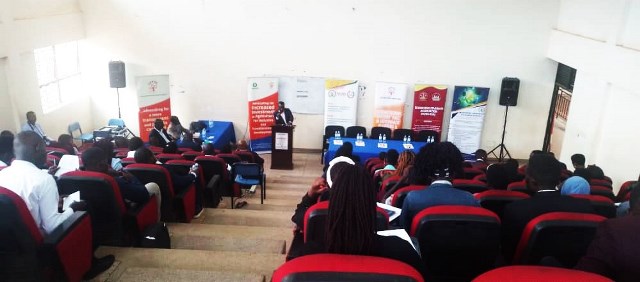CSBAG roots for increased funding for renewable energy

Uganda should reduce energy tariffs, devolve energy functions to lower levels of government and redirect funding towards renewable energy alternatives, if it is to improve access to clean energy and curb the destructive dependence on biomass, argues the civil society collective Civil Society Budget Action group CSBAG.
These and other recommendations form part of a research paper CSBAG presented to a public dialogue on renewable energy financing in Uganda that was hosted by Makerere University Business School on November 24. The research, conducted by Ronald Ochen, an economist at CSBAG, also explored the state of gender responsiveness to financing and opportunities for women in Uganda’s renewable energy policies.
In opening remarks, CSBAG executive director Julius Mukunda noted that electricity tariffs in Uganda which surged 8pc in the last quarter, made energy so expensive so that a majority of can only use electric power for lighting.
On the flipside, high energy tariffs drive many people to resort to biomass for energy-intensive tasks such as cooking, resulting in the felling of trees to produce a charcoal, whose demand is whopping 2 million tons annually.
Uganda has a 33 percent energy deprivation score with 33 pc of households experiencing severe deprivation. Biomass still accounts for 98pc of energy used with charcoal account ting for 28pc of that figure. However, in an indictment of energy policy, demand for charcoal is highest in urban areas, which use 58pc of all charcoal sold. The charcoal industry is so significant that it employs an estimated 200,000 people.
Although the country has a high potential for renewal energy, investment has been concentrated in hydropower at the expense of other sources. Access to the grid is still stunted at 19 percent of the population with a majority of rural households -27pc – depending on solar power for lighting.
CSBAG says that with 30.1 percent of the population living below the poverty line, the question of affordable financing for renewable energy becomes critical, because it determines access.
Because of their centrality to survival tasks for household sustenance, women are more impacted by energy shortages than men. And because female headed households are more financially deprived, they are more impacted by arbitrary increases in the price of energy, CSBAG found.
Among the key gaps found, was an outdated renewable energy policy and over-concentration of the energy sector at the centre. Renewable energy financing is also over reliant on donors, the cost of installation and operation of solar technology is high, limiting the scope of its application in rural areas where it is most needed.
CSBAG recommends that funding should be prioritised towards renewable energy alternatives, tariffs should be made affordable to increase access to mainline power, especially for the poor, the manufacturing sector and female-headed households. This should be complemented with a solar fund to improve access by poor and vulnerable communities.
The collective adds that energy subsidies should be transferred from fossil fuels to renewable energy technologies such as solar energy, to boost the uptake of renewable energy at the household level.

 African Heads of state head to South Korea next week for Summit talks
African Heads of state head to South Korea next week for Summit talks
 Trading leads as main source of income for Ugandans
Trading leads as main source of income for Ugandans
 New leadership for bankers’ umbrella as total assets top $12 billion
New leadership for bankers’ umbrella as total assets top $12 billion
 Brussels Airlines to announce Nairobi service
Brussels Airlines to announce Nairobi service
 SITA promises enhanced travel experience after Materna acquisition
SITA promises enhanced travel experience after Materna acquisition
 Saudia’s 105 aircraft order stretches A320neo lead over rival Max
Saudia’s 105 aircraft order stretches A320neo lead over rival Max
